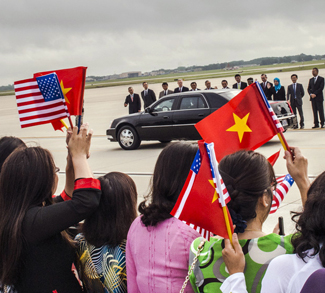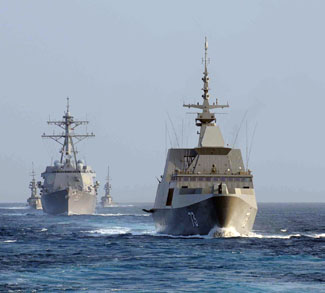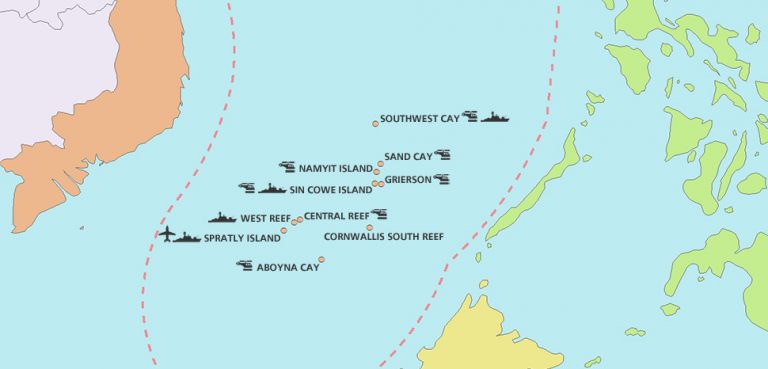Key Takeaways
- China employs ‘irregular’ military assets such as the China Coast Guard and maritime militia to advance its interests in the South China Sea and other disputed waters.
- Irregular forces are composed of professional, semi-professional, and amateur elements, with varying degrees of government support.
- Irregular forces can be deployed in an inter-state conflict in support of the PLA Navy.
China’s irregular maritime forces, including the China Coast Guard, maritime militia, distant-water fishing (DWF) fleets, and maritime law enforcement agencies are key tools for harassing foreign vessels and asserting Beijing’s territorial claims, as well as claims of fishing rights, particularly in the South China Sea. Operating in the ‘gray zone’ between civilian and military roles, these forces allow China to exert influence without direct military confrontation, maintaining plausible deniability. By relying on these forces, China avoids escalating tensions while complicating diplomatic responses, affording them a crucial role in advancing China’s territorial ambitions in disputed waters.
For years, China has relied on non-military “second sea forces,” including civilian and law enforcement agencies, to achieve strategic objectives while keeping a degree of separation from Beijing. The China Maritime Militia (CMM; also known as the People’s Armed Forces Maritime Militia) and the China Coast Guard, though not de jure military organizations, conduct military-like operations such as espionage, monitoring, and tracking foreign vessels. They use methods like satellite tracking, radio intercepts, and position recording to gather intelligence on maritime activity in disputed waters, which in turn can be shared with the PLA Navy. Before their absorption into the China Coast Guard in 2013, China Marine Surveillance (CMS) and China Fisheries Law Enforcement (FLE) played key roles in asserting China’s maritime and fisheries claims, particularly in the South China Sea, where China lacks recognized legal fishing rights under international law.
A short history of irregular operations in the South China Sea
China claims historical rights to vast portions of the sea, often overlapping with the exclusive economic zones (EEZs) of other nations. In 2000, the FLE occupied Mischief Reef, one of these disputed territories. By 2006-2008, the FLE and CMS, began maintaining a presence in all waters claimed by the PRC. Between 2006 and 2012, most hostile encounters between the PRC and foreign-flagged vessels were initiated by either the China Marine Surveillance (CMS) or the China Fisheries Law Enforcement (FLE). These forces were backed by the China Maritime Police (CMP), a small armed unit under the Public Security Border Defense Force (PSBDF), responsible for border security and maritime law enforcement under the Ministry of Public Security.
In 2013, China consolidated several maritime law enforcement agencies, including the China Marine Surveillance (CMS), China Fisheries Law Enforcement (FLE), and the China Maritime Police (CMP), into the unified China Coast Guard (CCG). Since then, both the CCG and the China Maritime Militia have been key tools for asserting China’s territorial claims in contested waters. Despite the 2016 ruling by the Permanent Court of Arbitration at The Hague, which rejected China’s “nine-dash line” claims as having no legal basis under international law, China has continued to enforce its claims through these irregular forces. The approach not only distances its aggressive actions from the regular military but also frees up the PLA Navy to project power beyond coastal waters.




